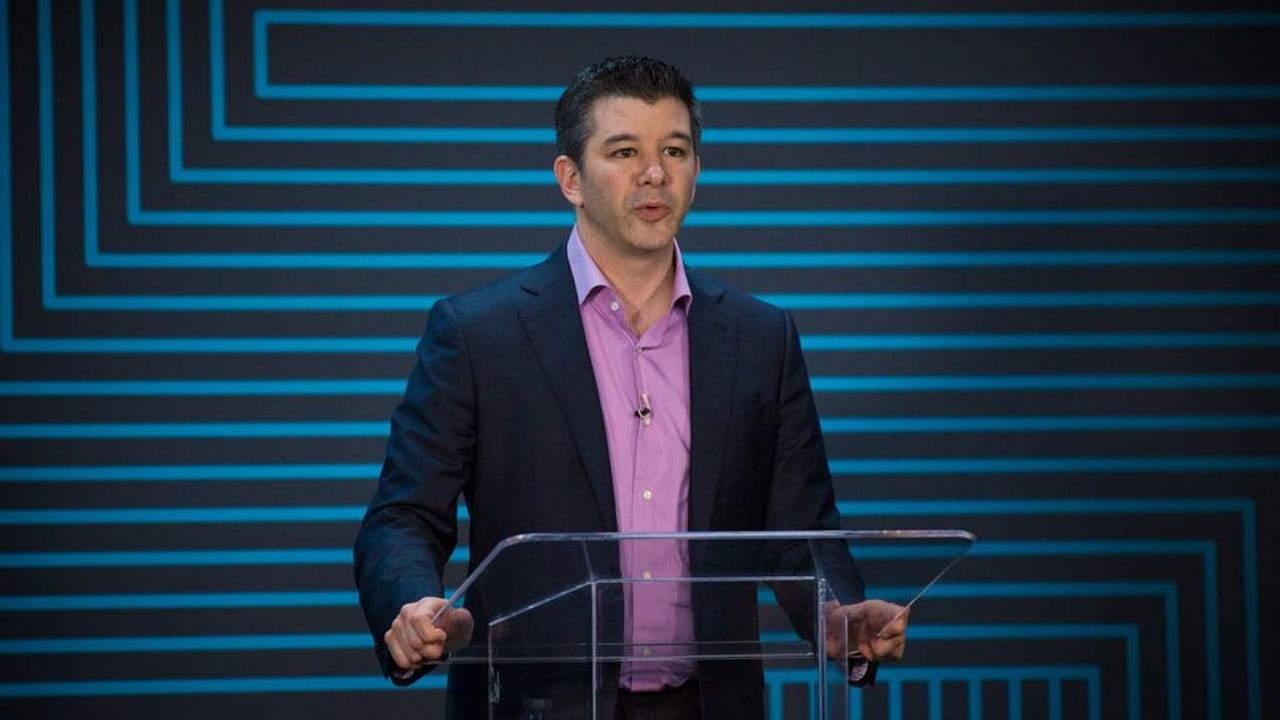Uber and Facebook: Partners in crime


He made the world a better place. For himself.
CNE
I'm experiencing a bubbling sensation just below my throat.
No, not acid reflux. It's the sheer vicarious, stomach-churning excitement I have for all those who'll make a vast fortune out of Uber's IPO.
You see, it's rumored to be the biggest tech IPO since Facebook's.
How can one not feel delighted that one of tech's other fine sages and authoritarians, Travis Kalanick, may be another $9 billion richer?
No, he's not quite a Zuckerberg. Financially, that is.
Yet the two have so much the same fine young entrepreneurial spirit that I can't help but see their similarities.
One painted a picture of a world that would be so open and connected that you could make friends with strangers in St. Petersburg. The one in Florida, or even the one in Russia.
The other offered rhapsodies about a world where cars would be shared among many, the roads would be miraculously decongested, and drivers would discover fine, new jobs that freed them from penury and pain.
You see, that's the way to make billions. Paint the world as a better, warmer, lovelier place.
Then go about ruthlessly exerting control over everything you can and treat everyone in your path as just so very, oh, backward. Or non-existent.
The headlines make for rapturous reading.
Sample:"Uber faces criminal investigation over Greyball spying program."
Another sample: "How Uber deceives the authorities worldwide."
These merely echo such joys as: "Facebook is breaking law in how it collects your personal data, court rules."
Or how about: "Facebook could face $1.63 billion fine under GDPR over latest data breach."
I can't help thinking that the rules for entrepreneurial success in the tech world consisted -- and perhaps still consist -- of routinely breaking regulations, laws, and anything else that smacks of maintaining vague social order and justice and replacing it with whatever will make your company bigger and richer right now.
I wonder if anyone ever whispered such things as they were training the great young things at America's finest business schools.
They surely don't teach it, though I'm moved that Stanford only recently discovered something precious: Ethics.
Perhaps, you'll mutter, all great companies have to shave a few corners and break a few laws just because they need to be great quickly.
F8 2019
Yet famed tech columnist Walt Mossberg surely isn't alone when he looks at Facebook latest admission that it's setting aside billions to pay a likely Federal Trade Commission fine and muses: "I suggest calculating it in years of revenues. And, after we get a real DOJ back, jail time."
I can't help thinking that these companies are a classic and painful example of how the few can make untold, uncontrolled piles, while everyone else has to deal with the consequences.
Where one company is now implicated in allegedly being the repository of disgraceful election manipulation and being the prime driver in flouting personal privacy, the other peddled a new vision of misogyny, cheap labor, and complete disregard for municipalities worldwide.
Some of Facebook's own former executives now wonder how badly it's affecting children's minds. As for Uber, it seems that in cities -- where it's making a killing -- there are more cars, not fewer.
You'll tell me both companies are very different now. These young founders learned from their mistakes. After all, one even got ousted. His company's business hasn't changed that much, however.
These are the two most valuable tech IPOs of our time. This is the very best we could do.
Of course it's humanity's fault that it was suckered.
We have a habit of choosing ease over everything else. We delight in the idea that technology gives us an extra split-second here and a cheery ability to get things through our phones anywhere.
And not for a moment do we consider what we're losing.